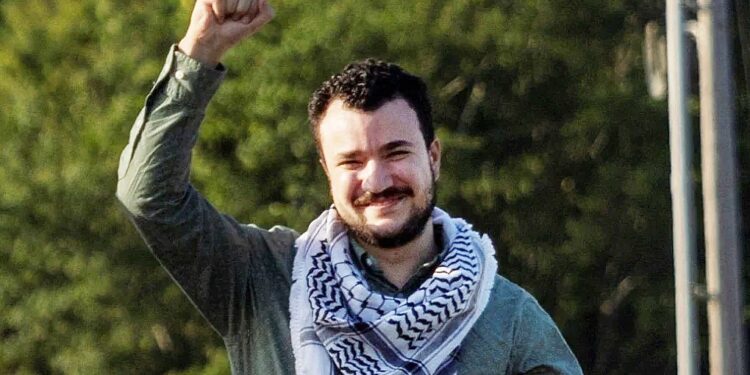Mahmoud Khalil, a long-detained Palestinian asylum seeker, has been released from a US Immigration and Customs Enforcement (ICE) facility after spending more than three months in detention without formal charges. His case had sparked growing concerns from human rights advocates and legal observers.
Khalil, a 42-year-old father of two, had been held since early March after reportedly being detained during a routine immigration check in Texas. He had previously applied for asylum in the United States, citing threats and instability in the West Bank. Despite having no criminal record and a pending legal appeal, Khalil was placed in a federal detention centre in Louisiana, where conditions were described by his legal team as “inhumane and psychologically damaging”.
His release comes amid mounting scrutiny of ICE’s handling of non-criminal immigration cases, particularly those involving vulnerable individuals or ongoing legal proceedings. Advocacy groups argued that Khalil’s extended detention contravened both US immigration law and international protections for asylum seekers. A petition demanding his release gathered over 20,000 signatures, while several members of Congress raised questions about the legality and proportionality of his confinement.
Khalil’s lawyers confirmed that he had been released on humanitarian grounds following a review by federal immigration officials. His legal status remains unresolved, and he is expected to continue his asylum process outside of detention. “This is a step towards justice, but the system that allowed this to happen remains deeply broken,” said one of his attorneys.
The case has reignited debate around ICE’s broad discretionary powers, particularly when it comes to prolonged detentions of non-violent individuals. Immigration courts in the US remain heavily backlogged, and Khalil’s experience reflects a broader pattern of people being held for months while awaiting hearings. Critics say that such delays and indefinite detentions undermine the rule of law and impose lasting psychological harm.
Khalil, who had previously worked as a translator and teacher in the Palestinian territories, expressed relief upon his release but said his detention had left emotional scars. “I am grateful to be free, but I carry the pain of those still inside,” he said in a brief statement issued through his lawyer.
His release is being seen as both a small victory and a reminder of the uncertain landscape facing asylum seekers in the United States. While Khalil is now reunited with his family in Chicago, his future in the country remains far from secure.
newshub finance



Recent Comments